Ghost Festival
Ghost Festival: China’s Timeless Commemoration of Ancestors and the Departed

The Ghost Festival (Zhōngyuán Jié), also known as the Hungry Ghost Festival, is a profound and deeply - rooted aspect of Chinese cultural heritage. It is a solemn occasion dedicated to honoring ancestors and appeasing wandering spirits. Falling on the 15th day of the seventh lunar month, typically in August or September, this festival is imbued with a sense of reverence and a unique blend of spiritual beliefs. For travelers, it offers a chance to witness a different side of Chinese culture, from ancient rituals and traditional performances to the lighting of lanterns on rivers to guide the spirits. Below, we delve into its spiritual symbolism, regional customs, and the enduring spirit of remembrance.
 Dates & Public Holidays: A Lunar Rendezvous with the Spirit World
Dates & Public Holidays: A Lunar Rendezvous with the Spirit World
▶ Lunar Date & Seasonal Significance
The festival occurs on the 15th day of the seventh lunar month, a time when, according to traditional Chinese beliefs, the gates of the underworld are opened, allowing spirits to roam the earthly realm. Families gather to pay their respects to their ancestors and offer food and prayers to ensure the well - being of both the living and the dead.
▶ 2025 Key Dates
- Lunar Date: August 17, 2025 (15th day of the 7th lunar month)
- Note: The Ghost Festival is not a national public holiday in China. However, some local communities may have specific activities or adjusted work schedules during this period.
▶ Public Holiday Schedule (2025 - 2029)
| Year | Lunar Date | Gregorian Date Range (Peak Celebrations) |
|---|---|---|
| 2025 | August 17 | August 15 - 18 |
| 2026 | August 5 | August 3 - 6 |
| 2027 | August 24 | August 22 - 25 |
| 2028 | August 12 | August 10 - 13 |
| 2029 | August 31 | August 29 - September 1 |
 Core Traditions & Celebrations: From Ancestral Worship to Spirit - Appeasing Rites
Core Traditions & Celebrations: From Ancestral Worship to Spirit - Appeasing Rites
▶ Offering Rituals: Nourishing the Spirits
- Symbolism: Families prepare elaborate offerings of food, such as fruits, meat, and traditional dishes, and place them on ancestral altars or at roadside intersections. These offerings are believed to nourish the spirits of the deceased and show respect for their contributions to the family.
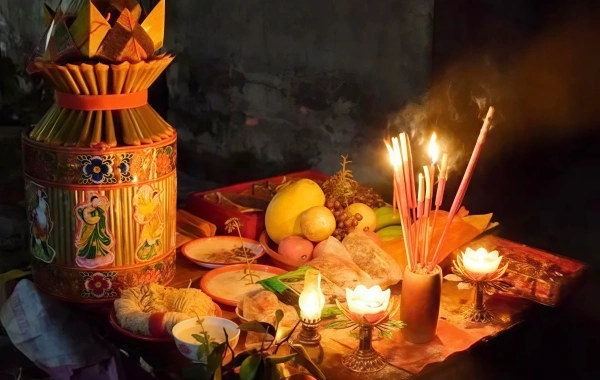
- Regional Variations:
- Guangdong: In addition to food, they may also offer paper - made items like clothes, houses, and cars, which are burned as a way to send these gifts to the spirit world.
- Sichuan: Some families will make special rice dumplings filled with various ingredients, symbolizing unity and completeness, and share them among family members after the offering ceremony.
- Shanxi: They have the custom of offering steamed buns in the shape of animals, such as pigs and sheep, representing abundance and good fortune.
▶ Lantern Lighting: Guiding the Wanderers
- Origins: Lanterns are lit and placed on rivers or lakes to guide the wandering spirits back to the underworld and prevent them from getting lost in the human world. The light is seen as a beacon of hope and safety for the souls.
- Modern Rituals:
- Floating Lanterns: In many cities, people gather by riversides to release floating lanterns. Each lantern carries a wish or a prayer for the well - being of the departed. For example, in Nanjing, the Qinhuai River becomes a sea of floating lanterns during the Ghost Festival, creating a mesmerizing sight.

-
- Paper Lantern Displays: Some parks and temples set up elaborate paper lantern displays, often featuring traditional Chinese motifs and stories related to the afterlife. In Chengdu, the Jinsha Site Museum hosts a lantern festival during this period, combining ancient cultural elements with modern lighting technology.
▶ Opera Performances: Entertaining the Spirits
- Symbolism: Traditional Chinese operas are performed in open - air theaters or on temporary stages set up in streets and squares. It is believed that the spirits can enjoy these performances, and the lively music and colorful costumes help to create a festive atmosphere in the spirit world.
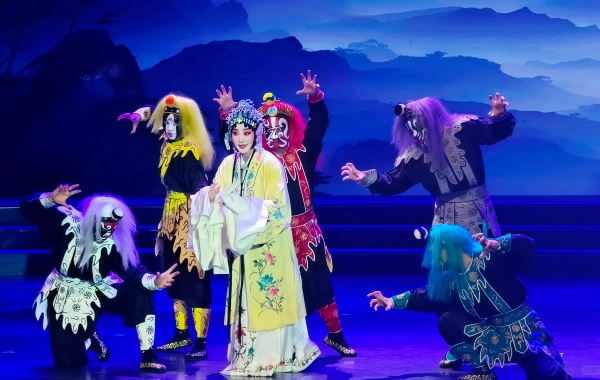
- Regional Styles:
- Beijing Opera: Known for its elaborate costumes, stylized movements, and powerful singing, Beijing Opera performances during the Ghost Festival often feature stories about ghosts, immortals, and the afterlife.
- Sichuan Opera: Famous for its face - changing and fire - spitting techniques, Sichuan Opera adds an element of mystery and excitement to the festival. In Chongqing, you can catch Sichuan Opera performances in traditional tea houses or outdoor venues.
▶ The Legend of Mulian Saves His Mother: A Tale of Filial Piety
- Content: Mulian was a devout Buddhist monk. His mother, after death, was reborn in the hungry ghost realm due to her past sins. Mulian used his supernatural powers to search for her and eventually, with the help of Buddha, was able to save her from suffering.
- Significance: This legend emphasizes the importance of filial piety and the power of good deeds to overcome the consequences of sin. It serves as a moral lesson for the living to be kind and compassionate towards their parents and ancestors.
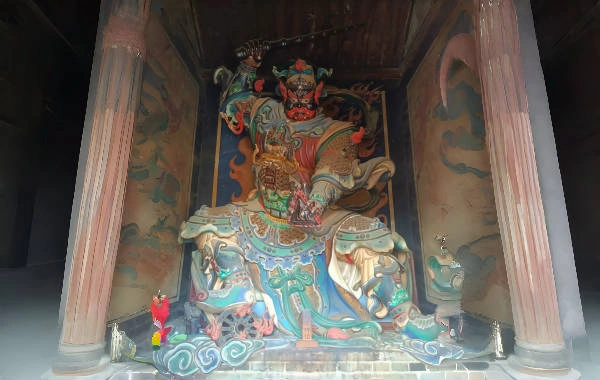
 Culinary Delights: A Feast for the Spirits and the Living
Culinary Delights: A Feast for the Spirits and the Living
▶ Must - Try Dishes for International Travelers
- Zongzi: Although more commonly associated with the Dragon Boat Festival, zongzi is also a popular food during the Ghost Festival in some regions. These glutinous rice dumplings, wrapped in bamboo leaves, can be filled with sweet or savory ingredients, such as red bean paste or pork.
- Cold Noodles: In northern China, cold noodles are a refreshing dish enjoyed during the hot summer months of the Ghost Festival. The noodles are usually served with a variety of vegetables, meat, and a flavorful sauce.
- Fried Dough Twists: These crispy and golden - brown snacks are a common sight at street stalls during the festival. They are easy to eat on the go and are a favorite among both locals and tourists.

▶ Symbolic Foods & Their Meanings
- Duck: In some areas, duck is considered a symbolic food for the Ghost Festival. The word "duck" in Chinese sounds similar to the word for Suppress evil spirits (压制), which means to suppress or control. Eating duck is believed to help suppress evil spirits and bring peace to the family.
- Watermelon: The round shape of watermelon symbolizes completeness and unity. It is often offered to the spirits as a refreshing treat during the hot summer festival.
 Traveling During the Ghost Festival: Tips & Destinations
Traveling During the Ghost Festival: Tips & Destinations
▶ Essential Travel Advice
- Respect Local Customs: The Ghost Festival is a time of great spiritual significance, so it is important to be respectful of local traditions and rituals. Avoid making loud noises or engaging in disrespectful behavior near ancestral altars or ritual sites.
- Book Accommodations in Advance: Although not a major public holiday, some popular tourist destinations may experience an increase in visitors during the Ghost Festival. It is advisable to book your accommodations well in advance to ensure availability.
- Dress Appropriately: Since the festival is a solemn occasion, it is best to dress modestly and avoid wearing overly revealing or flashy clothing when attending rituals or visiting temples.
▶ Top 5 Destinations for International Visitors
Fengdu, Chongqing
- Fengdu Ghost City: This is a unique theme park based on the Chinese concept of the underworld. During the Ghost Festival, the city comes alive with various performances, rituals, and exhibitions related to ghosts and the afterlife. You can explore the eerie streets, visit the "ghost houses," and learn about traditional Chinese beliefs about death and the spirit world.
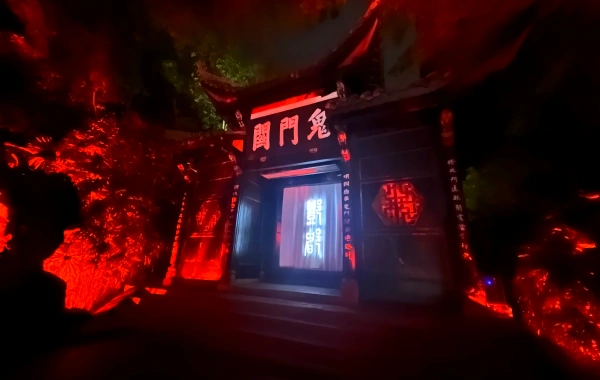
- Yangtze River Cruise: Take a cruise along the Yangtze River near Fengdu during the festival. You can witness the traditional floating lantern ritual from the comfort of your boat, creating a truly magical experience.
Luoyang, Henan
- Longmen Grottoes: While visiting the ancient Buddhist grottoes, you can also experience the Ghost Festival rituals in the local temples nearby. The combination of ancient religious art and traditional spiritual practices offers a unique cultural insight.
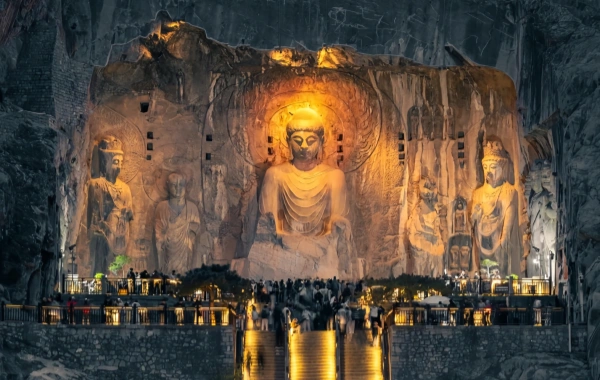
- Luoyang Old Town: Stroll through the narrow streets of the old town, where you can find traditional tea houses and small shops selling paper - made offerings and lanterns. You may even have the chance to participate in local rituals.
Hangzhou, Zhejiang
- West Lake: The serene West Lake provides a beautiful backdrop for the Ghost Festival celebrations. You can take a boat ride on the lake at night and watch as floating lanterns drift across the water, creating a peaceful and mystical atmosphere.
- Lingyin Temple: This famous Buddhist temple hosts special ceremonies during the Ghost Festival to pray for the peace of the departed souls. You can join the local worshippers in offering incense and prayers.
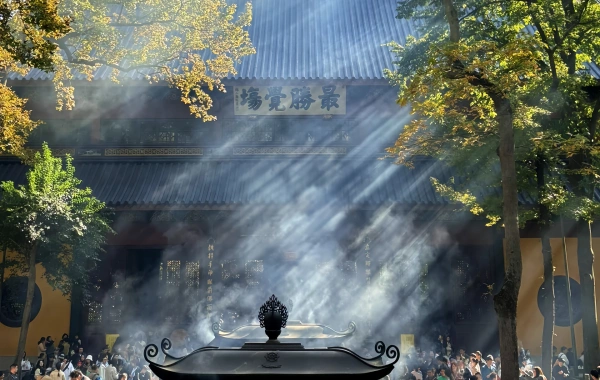
Xi'an, Shaanxi
- Terracotta Army: After visiting the world - famous Terracotta Army, you can explore the local markets in Xi'an, where you can find a variety of traditional Ghost Festival offerings and handicrafts.
- Great Wild Goose Pagoda: The pagoda and its surrounding area often have cultural performances and rituals during the festival. You can watch traditional Chinese operas and participate in lantern - lighting ceremonies.
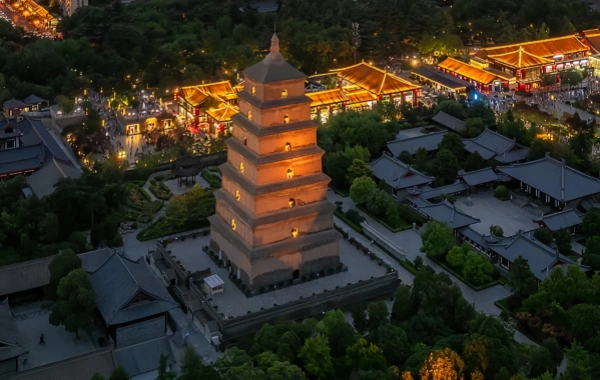
Suzhou, Jiangsu
- Classical Gardens: Suzhou's classical gardens, such as the Humble Administrator's Garden and the Lingering Garden, offer a tranquil setting for the Ghost Festival. Some gardens may host special events, like lantern displays and traditional music performances, during this period.
- Shantang Street: This ancient street is lined with traditional shops and restaurants. During the Ghost Festival, you can sample local delicacies and buy paper - made items for offerings.
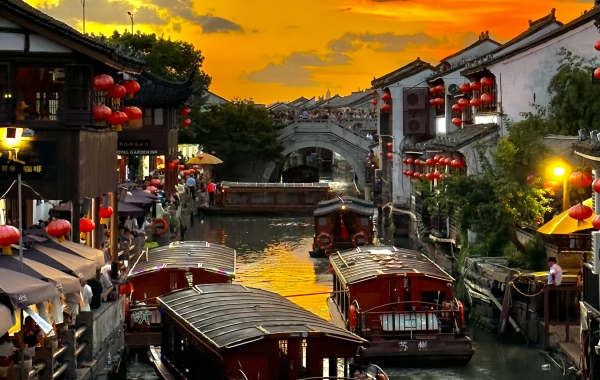
▶ Hidden Gems Off the Beaten Path
- Wuyuan, Jiangxi: This picturesque county is known for its beautiful countryside and ancient villages. During the Ghost Festival, you can experience traditional rural rituals, such as offering food to ancestors at family ancestral halls and participating in folk performances in the village squares.
- Zhouzhuang, Jiangsu: As one of the most famous water towns in China, Zhouzhuang takes on a special charm during the Ghost Festival. You can take a gondola ride along the canals at night, watching as lanterns are lit on the bridges and boats, creating a romantic and mysterious atmosphere.
- Huangyao Ancient Town, Guangxi: This well - preserved ancient town offers a glimpse into traditional Chinese life. During the festival, you can witness local residents performing ancestral worship rituals in their ancestral halls and enjoy traditional opera performances in the town's theaters.
 History & Cultural Evolution
History & Cultural Evolution
▶ Ancient Origins
- Pre - Qin Period: The concept of honoring ancestors and communicating with the spirit world can be traced back to the pre - Qin period. Early Chinese societies believed in the existence of an afterlife and practiced various rituals to ensure the well - being of the dead.
- Han Dynasty (206 BCE - 220 CE): The Ghost Festival gradually took shape during the Han Dynasty, with the development of Buddhist and Taoist beliefs. Buddhist teachings about the cycle of rebirth and the concept of hell influenced the festival's rituals, while Taoist ideas about the balance between yin and yang added to its spiritual significance.
▶ Modern Adaptations
- Environmental Awareness: In recent years, there has been a growing awareness of environmental protection during the Ghost Festival. Some communities have started to use biodegradable materials for making lanterns and offerings, reducing the impact on the environment.
- Cultural Tourism: The Ghost Festival has become an important part of China's cultural tourism. Many tourist destinations now organize special events and activities during the festival to attract visitors and promote traditional Chinese culture. For example, some cities have introduced interactive exhibits and workshops that allow tourists to learn more about the festival's history and customs.
 Embrace the Mystique of Remembrance
Embrace the Mystique of Remembrance
The Ghost Festival is a unique and fascinating aspect of Chinese culture that offers a deep insight into the country's spiritual beliefs and traditions. Whether you are witnessing the ancient rituals, enjoying traditional performances, or simply soaking in the mysterious atmosphere, the festival invites you to connect with the past and honor the memory of those who have come before us. Come with an open mind and a sense of curiosity, and you will discover a world of spiritual beauty and cultural richness during the Ghost Festival in China. Welcome to this extraordinary journey of remembrance and reverence!
What Our Clients Say?
Based on 10,000+ traveler reviews











